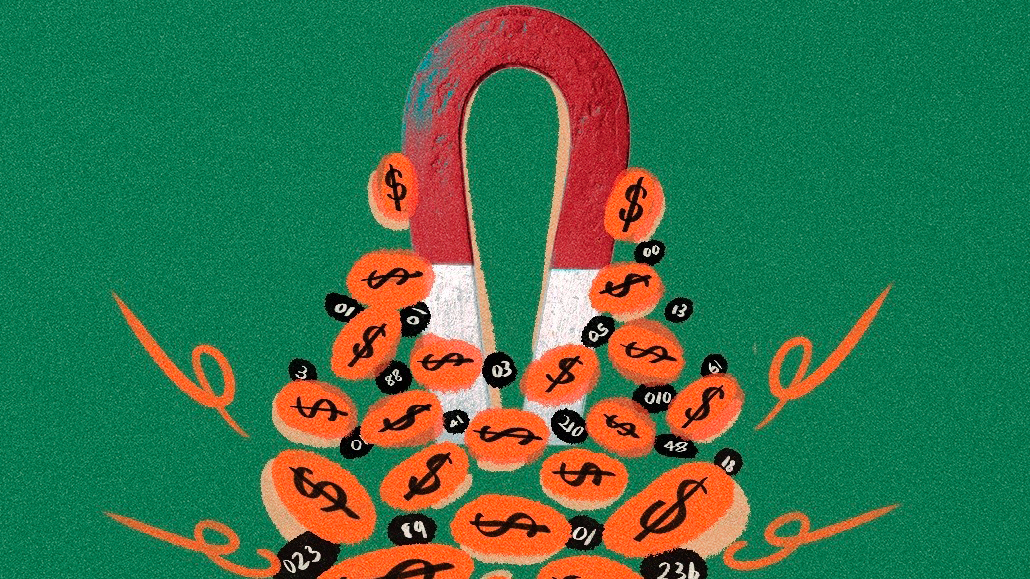Secure your place at the Digiday Media Buying Summit in Nashville, March 2-4
Expedia’s launching a retail media network. Is it late for departure?

The website that aimed to replace travel agents is now also an ad network. Expedia has become the latest U.S. company to launch a retail media business, promising at a travel industry conference in Las Vegas to build “the world’s leading travel media network.”
Marketers hoping to use retailer-held first-party data to target key audiences aren’t exactly spoiled for choice these days. But, despite concerns among advertisers that the retail media market has too many players and inadequate standardization to drive effective results, media agency experts say the demand among advertisers in and around the travel sector could offer Expedia enough headroom to gain some ground among the competition.
“We really believe we’re revolutionizing the travel industry by creating what we want to call the world’s leading travel media network,” Rob Torres, svp of media and affiliate solutions at Expedia Group, said in an interview with Digiday prior to the announcement.
Expedia already sells display advertising on its 200-odd sites, and generated $145 million in revenue during the first quarter of 2024. Its own inventory includes sponsored listings, paid search ads and digital display. But with a $135 million loss in the same quarter, the platform is looking for new sources of revenue.
In addition to furnishing advertisers with customer intent and purchase data for display ads on its owned and operated properties, available via programmatic guaranteed, Expedia’s making available the expertise of its internal media buying team — the firm in-houses most of the media buying it does for its own brands, which include Vrbo, Hotels.com and Trivago — to travel advertisers looking to make off-site media buys. The internal team is also offering its own measurement services, Torres said.
A pilot campaign for the RMN had Expedia place a “Visit Canada” campaign on billboards at London’s Heathrow airport, for example, in a bid to tempt more travelers northward. Expedia’s “audience extension” products also include YouTube, Samsung Smart TV, Apple TV, Playstation, Xbox and Amazon FireTVStick. Jennifer Andre, vp of business development at Expedia group media solutions, said the company was pursuing new alliances to add digital publishing inventory to the range of media channels, while it’s also inked partnerships with Netflix, Pinterest and Disney+ for bespoke campaigns.
The company is also touting the capabilities of its in-house creative agency, Media Studio, through which advertisers can plan campaigns that include advertising on inventory in the white-label site integrations built by Expedia for B2B clients (it offers search engine widgets to hotels, for example, which include sponsored listings). Andre said Expedia wants to become a “one stop shop” for advertisers in the travel sector.
“Yes, we’ve always sold advertising. But now we’re actually creating this network where a partner could work with us from all the way up to that high level inspiration, all the way down to a sponsored search result,” she said. The company is offering advertisers a data clean room solution to facilitate the use of that first-party data, a spokesperson for Expedia confirmed.
Andre said that the company expects its retail media offerings to draw non-endemic brands that are “adjacent” to travel, such as financial services companies or luggage brands. But according to Torres, the retail media suite is primarily aimed at smaller and mid-sized advertisers — brands native to the category, but which don’t have the budget to work with major media agencies.
“Big name partners are not going to give up their individual buying expertise. But I think there’s many that will look at this and say, ‘This is a great opportunity for us to really capture what we’re looking for, to find the right traveler all in one place,’” he said. He added that the company planned to build self-serve tools for off-site media buying, but didn’t state when the tools would be available.
Like the ancient streets of Venice in Italy or Dubrovnik in Croatia, the retail media space is getting pretty crowded. And like those saturated tourist markets, some industry observers fear the retail media sector isn’t sustainable. Expedia isn’t the first to create a travel retail media network — Marriott established one in 2022, and Uber did the same a year later. Could that get in the way of Expedia’s goal of creating a “world leading” platform?
“On the face of it, there are too many [retail media networks],” said Sean Crawford of Threefold, a specialist retail media agency based in the U.K. But, he suggested, there’s still enough room in the market for Expedia. “They’ve got huge [amount of] data. I’m a hotels.com customer, and they’ve got loads of data on me in terms of where I stay, where I travel, where I revisit, where I cash in my loyalty rewards. It’s powerful information,” Crawford added.
According to Alex Walker, managing director of Havas Market, Expedia’s focus on brands endemic to the travel sector — tourist boards, car rental firms, hotel chains and airlines — should give it enough of an edge.
“There’s always room for good retail media networks and particularly ones with niches. From the advertiser side, with all the inventory on their websites, I’d be very surprised if there isn’t a relatively large appetite for it” he said.
Andre said she believes there’s room for one more. “I’m not worried about it,” she said.
More in Marketing

Future of Marketing Briefing: AI’s branding problem is why marketers keep it off the label
The reputational downside is clearer than the branding upside, which makes discretion the safer strategy.

While holdcos build ‘death stars of content,’ indie creative agencies take alternative routes
Indie agencies and the holding company sector were once bound together. The Super Bowl and WPP’s latest remodeling plans show they’re heading in different directions.

How Boll & Branch leverages AI for operational and creative tasks
Boll & Branch first and foremost uses AI to manage workflows across teams.








